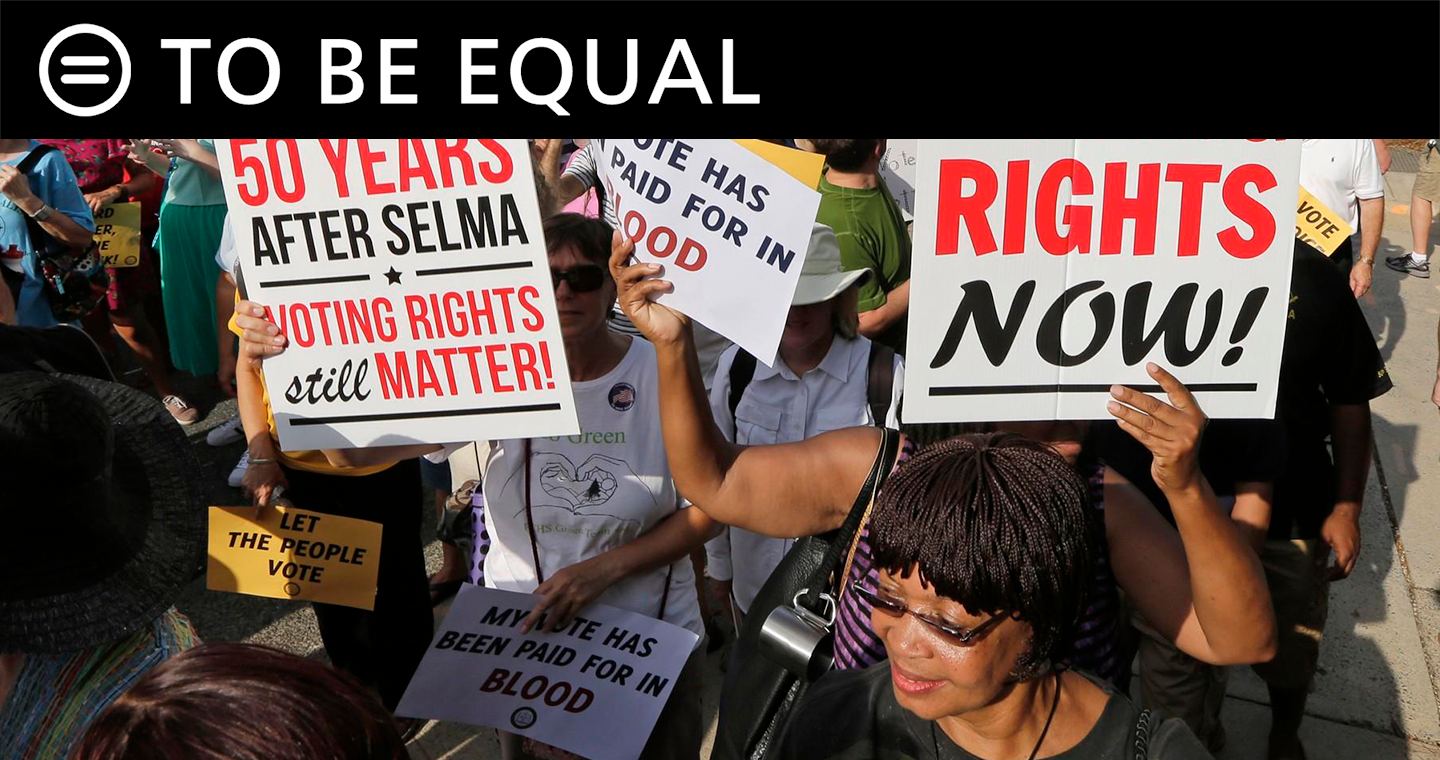Voting Rights Act Reauthorization Drew Together Diversity Of Supporters in Struggle to Become Law [July 28, 2006]

President Bush’s recent signing of the Voting Rights Act reauthorization ended a long and difficult struggle to ensure the renewal of this very important statue—considered to be the centerpiece of the 1960s civil rights movement.
Originally enacted in 1965, the Voting Rights Act has enfranchised millions of African- American citizens by eliminating discriminatory practices, such as literacy tests, poll taxes and other means, to discourage political participation. It also served to open up the political arena for blacks seeking elected office.
It was the National Urban League’s top legislative priority for three years to get expiring provisions of the historic act extended 25 years.
The end result of hours of hearings and much collaboration with U.S. Congress members from both sides of the aisle—the House and Senate leadership and Congressional Black Caucus—was an outstanding product of leadership and commitment that enjoyed bipartisan and bicameral support.
Introduced on May 2, the legislation sailed through the House Judiciary Committee eight days later by a vote of 33-1, thanks in part to chairman Rep. James Sensenbrenner, the bill’s chief sponsor. The measure enjoyed support from 58 cosponsors, including House Speaker Dennis Hastert, R-Ill., and House Minority Leader Nancy Pelosi, D-Calif.
Efforts to extend the act’s expiring provisions had vigorous support from the civil rights community, social progressives and others. We thought it was a done deal. Oh what a difference a month made. By late June, rumblings of discontent had reverberated throughout the House.
A few vocal dissenters—mostly southern lawmakers decided to voice their objections at the least opportune time—a House Republican caucus luncheon held the day the legislation was scheduled to hit the floor for a vote.
The opposition got the ear of House Speaker Hastert, who postponed floor consideration of the measure. But he proved a man of his word after all was said and done.
Shortly after the bill was pulled from the House calendar, I called the speaker.
He told me he had some fires to extinguish before putting the bill back on the House calendar. It was beginning to look pretty bleak the morning of a Voting Rights vigil organized by the National Urban League, Black Leadership Forum and others in the civil rights community, when the Associated Press reported that the reauthorization’s prospects appeared dim.
Wade Henderson, executive director of the Leadership Conference on Civil Rights (LCCR) as well as Reps. John Conyers, D-Mich., the Judiciary Committee’s top ranking Democrat and Mel Watt, D-N.C., head of the Congressional Black Caucus, proved instrumental in keeping the heat up under House lawmakers. But the wild card proved to be corporate America, which rarely weighs in on social—let alone controversial—issues on Capitol Hill. A coalition of corporate interests including The Business Roundtable, a group of 150 chief executives headed by Pfizer CEO Hank McKinnell, stepped into the fray at the 11th hour.
Companies including AT&T, CBS, Coca-Cola, Comcast, Eli Lilly, Freddie Mac, Pepsi, Tyco, Verizon, Wal-Mart, the Walt Disney Co., among others, also joined up, citing a wide range of reasons for their support.
According to The Hill newspaper, Verizon CEO Ivan Seidenberg described the bill as “vital to the continuation of our free and open democracy” in a July 11 letter to lawmakers.
“As a communications company, Verizon thrives on the robust, rich diversity of our communities,” he wrote. Wal-Mart, the largest private employer of African Americans and Hispanics, was one of the first corporations to pledge support for the legislation. On July 10, Wal-Mart CEO Lee Scott called upon House lawmakers to “move forward expeditiously,” according to The Hill newspaper.
“The company that is CBS…could not exist in anything other than a free society. The daily exchange of ideas and conflicting views, whether in news, sports or entertainment programming, would not be nearly as robust…without the cornerstone of our society…the utterly free flow of ideas,” CBS chief Les Moonves wrote to lawmakers, The Hill reported.
In the end, the efforts of a few dissenters that nearly derailed the legislation proved fruitless. The U.S. House of Representatives overwhelmingly approved the legislation 390 to 33.
A week later, President Bush’s ringing endorsement of the legislation without amendment at the NAACP’s annual convention helped set the stage for the Senate’s unanimous passage of the legislation by a vote of 98 to 0 a week after the House’s approval.
This dramatic turnaround of events couldn’t have occurred without this broadbased coalition. It represents just the kind of diversity that the Voting Rights Act will continue to promote and protect.

